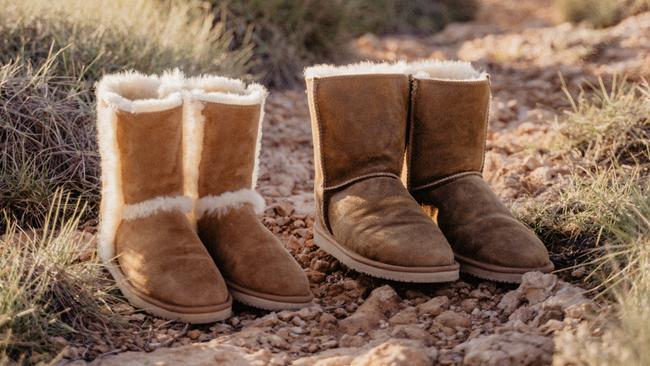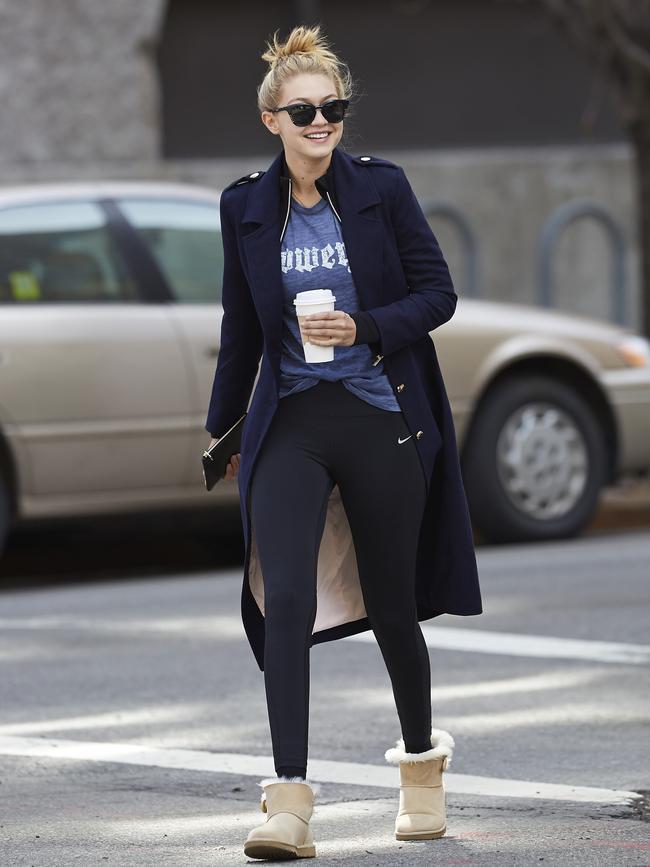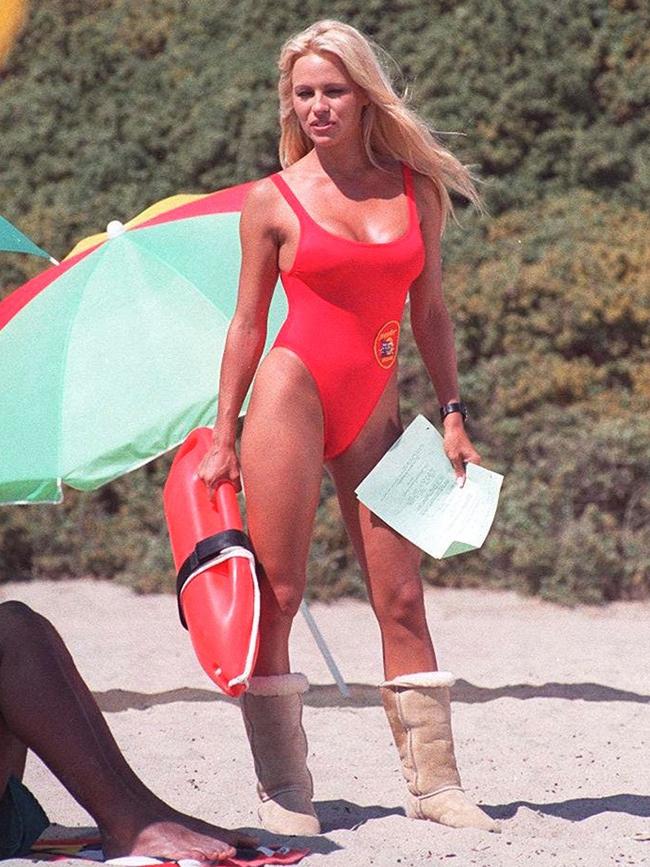For the love of uggs
Once mocked, now embraced, the humble ugg boot has emerged as a pandemic panacea.

In years to come, when someone asks you, “What did you buy during the global pandemic of 2020?”, there is every chance many of you reading this will reply: “Uggs.”
When COVID-19 arrived in Australia in March and many of us started working from home, a new reality set in. No longer did we have to get up and put on our workwear. We could work all day in our activewear or pyjamas, and pop on a nice shirt for the occasional Zoom meeting or cocktails. And then the temperature dropped and we needed cocooning as much from the weather as the unknown.
I, too, succumbed to the warmth and charm of our iconic Aussie sheepskin boot once more, my previous pair having long since given their final ounce of spring after more than a decade of slipper service. Knowing how hard many Australian businesses were doing, I also wanted to support local, and so went down the rabbit hole to find not only an Australian-owned, but Australian-made brand – and they’re not that easy to find.
I settled on the Queensland-based Ugg Since 1974 – and placed an order for a royal blue pair (which I wear as I type). Hell, I wanted to feel a little fancy during who knows how long of isolation. I was soon informed there would be a delay in delivery due to the high volume of orders. It seems I wasn’t alone.
No mean feat
These classic sheepskin boots have a long and chequered history, from their beginnings as a humble foot warmer for surfers in the 1960s, to their plum role as pandemic panacea today. In Australia, they have at times been reviled for their association with bogan chic when worn outdoors, but happily embraced for indoor wear in the winter months.
They have been equally celebrated and denounced thanks to various celebrity sightings.
For some, they will always conjure memories of Pamela Anderson wearing knee-high uggs with her red swimsuit between takes on Baywatch in the 1990s. Others will remember the early 2000s when they really hit their squidgy stride, as Beyonce, Kate Moss, Sarah Jessica Parker and Ben Affleck sported them; Paris Hilton naturally wore bedazzled ones with her Juicy Couture tracksuit. They became synonymous with off-duty Starbucks runs and downtime on sets.
More recently Gigi Hadid, Cardi B and Pharell Williams have done their bit to add cred to the footwear.
For most Australians they remain at the heart of our winter wardrobe while indoors, the next best thing to an open fireplace for your feet.
But for something as quintessentially Australian as the Akubra, uggs have identity issues. The truncated version is that expat surfer Brian Smith started importing the boots into the US in the late 1970s, and registered Ugg as a trademark; in 1987 he set up Ugg Holdings, which he sold to California-based Deckers Outdoor Corporation in 1995. With that, Deckers registered further trademarks with the name Ugg, including until recently Ugg Australia (a Melbourne-based company has subsequently taken on that brand name). When they took over the company, Deckers also shifted all manufacturing out of Australia. They now dominate the global ugg boot market; in 2019, Ugg generated AUD$1.2 billion in sales.

The upshot? No Australian brand can sell ugg boots internationally using the word ugg. And Deckers has proven to be litigious on the matter.
Just last year, after a three-year battle, Sydney company Australian Leather and its owner Eddie Oygur were ordered to pay $650,000 in damages to Deckers for the sale of 12 pairs of ugg boots into the US between 2014-16.
(Australian Leather did not respond to approaches for comment.)
At the time of the verdict, Oygur said: “I fought this, against a $7 billion US corporate giant, because I passionately believe ‘Ugg’ belongs to Australia, for any Australian company to use to make ugg boots for the world.”
Australian companies selling internationally have to use alternative brand names that do not include the word ugg. But within Australia, it’s open slather.
“Ugg in Australia is a generic word for a sheepskin boot, no-one can own the trademark,” said Hannah Watts, co-owner with her husband Todd of Ugg Since 1974, a third-generation family business started by Todd’s grandparents.
“The flipside of the coin is that outside Australia, Deckers Outdoor Corporation, a billion-dollar, publicly-listed American company, owns the right to the trademark Ugg in most countries other than Australia and New Zealand.
“That prohibits people like us, Australian manufacturers, selling outside Australia under the name Ugg. That’s where a lot of the confusion is generated.” For the international market, for example, Ugg Since 1974 trades as Wild Wool Australia.
Watts describes the situation as a “landmine” for anyone trying to source genuine Australian-owned and made boots, adding that there is only a handful of companies that, like theirs, make the boots in Australia from start to finish.
Equally confusing is that even many Australian-owned companies manufacture at least part of their boots offshore. But if they are “substantially transformed” in Australia they can still carry the Australian Made logo, according to Australian Made chief executive Ben Lazzaro.
“Laws around country of origin statements are subjective - therein lies the passion in the discussion,” says Lazzaro. “That’s why the compliance team at Australian Made has a big job. They have to have a consistent view in their review and assessment of products.
“There’s no one definition for an ugg boot (being Australian made). You might cut and sew here and do some of the other processes elsewhere. Every product is made differently and each one is judged on its merits.”
If you do want to buy an Australian-made pair of ugg boots, the website australianmade.com.au is a good place to start the journey, listing those who meet this criteria, and many of the brands will state
if they are 100 per cent made in Australia.
The Covid effect
By February, things were looking catastrophic for Watts’s family business, for which 96 per cent of sales were to international tourists, largely from China, which was the first impacted by COVID-19. “Overnight our bricks and mortar stores went from 100 per cent to zero,” she said. “It was a pretty scary thought because there was no tourism on the horizon.”
Thanks in part to a video the brand posted that received half a million views, and with people looking to support local businesses, demand was soon such that the company was able to put on casual staff to full-time, and hire more casual workers to keep up with demand. “If you’ve ever wondered what difference you can make buying Australian made, we’re a prime example. We’re hoping that the word keeps getting around that people are happy with the product. Maybe other manufacturers and retailers will think they can shift some manufacturing back to Australia. It’s better for our industry and economy as a whole.”
The popularity of the boots themselves isn’t limited only to those that are locally made. Sarah Kirwan, David Jones buyer for ladies footwear tells The Australian that across the board, sales for the category are up. “Normally we order seasonally and for those Australian-made brands on a monthly basis, whereas now we’re doing weekly orders. We’re grabbing all the stock we can.”
Kirwan says they sell a number of brands, including Ugg, Hush Puppies, Grosby and Emu Australia, whose Platinum line is made in Geelong. In addition to the classic boot, Kirwan adds that sheepskin scuffs and Emu’s new Mayberry sheepskin slides are also popular with customers.

Fellow fashion writer Damien Woolnough reports that in Melbourne’s posher suburbs of Toorak and South Yarra just prior to the latest lockdown, the sheepskin moccasin was regularly spotted on the feet of its inhabitants. “Ugg moccasins used to go with a Winfield Blue and a smoker’s cough,” said Woolnough. “Now it goes with a negroni and a spritz of Jo Malone. The moccasin is the new Manolo.”
Kirwan believes that ugg boots have moved on from their bogan past to be re-embraced by Australians. “Absolutely we’ve moved through that,” she said. “It’s fair to say they’ve evolved a little since Pamela Anderson made them famous as well. I feel that we’re now matching them back with beautiful C&M tracksuits and Bassike hoodies. They have become a must-have item, and if you can get your hands on a pair – get them.”
She says this warm embrace is thanks to a good dose of nostalgia, largely brought on by the pandemic, and with it the need to stay at home and find comfort in the familiar. “It takes you back to when you were a child, you’d put your slippers or your ugg boots on at home with your family. It’s about warmth and that quintessentially Australian heritage.”
Kirwan baulks at the thought of wearing them outdoors, although she reports plenty of people wearing the boots outside on their morning walks in her Sydney seaside suburb of Manly. For most of us, the question remains: will they ever be truly acceptable as footwear outside the house? A short Twitter survey I put out this week put those against the idea at around 67 per cent.
For my money, I’ve only ventured as far outside as the rubbish bin. But the longer this pandemic continues, the more all bets are off - and uggs are on.

To join the conversation, please log in. Don't have an account? Register
Join the conversation, you are commenting as Logout